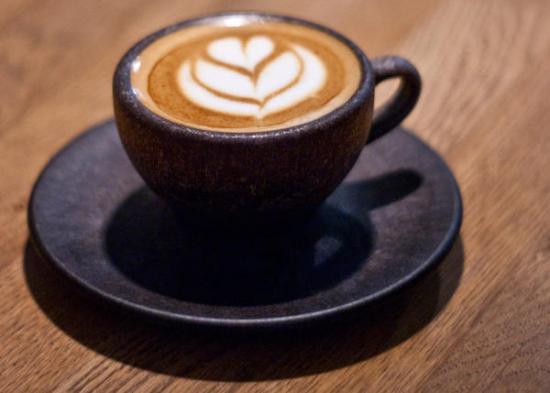Why is coffee bitter?

The bitterness of coffee has always been controversial. Some people say: how can it be called coffee if it is not bitter? Some people say: good coffee has a pleasant bitterness. There are many people say: good coffee should not have a bitter taste! Suffering is not good!

And why on earth is coffee bitter?
What do you mean by pleasant suffering?

When it comes to the bitter ingredients of coffee, perhaps most people's first reaction is caffeine! That caffeine is really a bad guy! It turns out that the bitter ingredient of caffeine comes from raw beans, is a bitter aftertaste, and its influence is only about 10% at most.
So what is the main ingredient of coffee that brings bitterness?

In order to solve this mystery that has plagued us for many years, Thomas Hofmann, a scientist at Technical University of Munich in Germany, decided to study the bitterness of coffee.
He filtered the brewed coffee and found that some of the molecules with the smallest molecular weight tasted the bitterest. So he used mass spectrometry to conduct a series of experiments and identified a molecule called chlorogenic acid lactone "chlorogenic acid lactone" as the culprit. (for convenience, let's call it Little Green Bar.)
Has this little green been available since the beginning of raw beans?

If we want to talk about Xiaolu, we must first talk about chlorogenic acid. To put it simply, chlorogenic acid exists in most plants and is produced by plants in the process of aerobic respiration. The small green is the coffee beans in the roasting process, decomposed from chlorogenic acid.
Does the baking degree have any effect on Little Green?

To this end, the researchers determined the content of small green in a series of coffee with different roasting degrees. Studies have shown that in the roasting process of coffee beans, the small green will increase with the deepening of the roasting degree. In light and moderate roasting, Little Green will only produce mild bitterness, which is what we call coffee characteristic, pleasant bitterness. As the baking time increases, the small green will be decomposed again and replaced by vinyl catechol polymer, which is the source of strong bitterness.
In this way, it is not difficult for us to understand why there is a saying in the world of curry-shallow sour, deep bitter. What we call pleasant bitterness is chlorogenic acid, and unpleasant bitterness is vinyl catechol polymer.
Is it true that the more chlorogenic acid, the better coffee with bitter taste?

The answer is, of course, no. Generally, the more chlorogenic acid in raw coffee beans, the worse the quality of cup testing. Many defective beans also have a lot of chlorogenic acid, so it is not the more chlorogenic acid the better.
For example, robusta coffee beans contain 7% Mel 11% chlorogenic acid, while Arabica coffee beans contain only 5% Mel 8% chlorogenic acid.
Is the deep-roasted coffee beans bad?

A cup of coffee is a complex drink made up of more than 30 chemicals, and it is these "compounds" that determine the taste, aroma and acidity of coffee. It is not that the bitterness caused by deep roasting is bad, but that each type of coffee bean has its own baking degree. According to the characteristics of each coffee bean, the roaster will choose the most suitable baking degree according to the characteristics of each coffee bean, and perfectly show the unique flavor of each coffee bean.
Source: TIMEMORE Coffee slow Life
Important Notice :
前街咖啡 FrontStreet Coffee has moved to new addredd:
FrontStreet Coffee Address: 315,Donghua East Road,GuangZhou
Tel:020 38364473
- Prev

Recycling of coffee grounds using Kaffeeform to regenerate coffee cups and plates
What is the function of the coffee grounds left over from making coffee every day, apart from throwing away or recycling for deodorization, deworming, deworming, and fertilizing? At the Amsterdam Coffee Festival (Amsterdam Coffee Festival) held in Amsterdam, the "Kaffeeform" coffee cup launched by German designer Julian Lechner is made by coffee grounds of the same brand.
- Next
What are the disadvantages of drinking too much coffee during menstruation?
I thought I got an easy job, but it turned out it wasn't. As a result of the need of work, can sleep very late at night, often drink some coffee to refresh, but recently began to menstruation, I am worried that drinking coffee will affect menstruation, what bad effect will drinking coffee have on the body after menstruation? Coffee is a kind of stimulating drink, but it is actually flat.
Related
- Unexpected! Ruixing Telunsu lattes use a smoothie machine to foam milk?!
- % Arabia's first store in Henan opens into the village?! Netizen: Thought it was P's
- Does an authentic standard mocha coffee recipe use chocolate sauce or powder? Mocha Latte/Dirty Coffee/Salty Mocha Coffee Recipe Share!
- What is the difference between Vietnam egg coffee and Norway egg coffee? Hand-brewed single product coffee filter paper filter cloth filter flat solution!
- What is the difference between sun-cured and honey-treated coffee? What are the differences in the flavor characteristics of sun-honey coffee?
- How to make Italian latte! How much milk does a standard latte use/what should the ratio of coffee to milk be?
- How to make butter American/butter latte/butter Dirty coffee? Is hand-brewed coffee good with butter?
- Is Dirty the cold version of Australian White? What is the difference between dirty coffee/decent coffee and Australian white espresso?
- Relationship between brewing time and coffee extraction parameters How to make the brewing time fall to 2 minutes?
- Got entangled?! Lucky opens a new store, Mixue Ice City, and pursues it as a neighbor!

